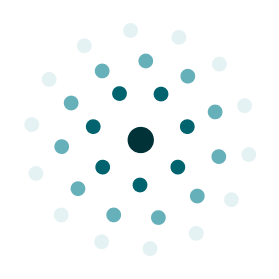Inspired by research from McKinsey & Company. All research insights referenced in this article are credited to McKinsey.
After more than 20 years helping organizations scale with exceptional talent, I’ve seen first-hand how hiring models evolve but rarely do they transform overnight. Today is one of those rare moments. The emergence of agentic AI, AI that plans, acts, and improves autonomously is reshaping how businesses operate, how leaders lead, and how organizations compete for talent.
McKinsey’s recent research reveals a striking landscape:
- Nearly 8 in 10 companies now use generative AI
- Yet over 80% are not seeing meaningful P&L impact
The gap isn’t caused by technology. It’s caused by organizational readiness. McKinsey states that without rethinking management, talent, and operating models, organizations cannot unlock the true value of agentic AI. And nowhere is this shift more pronounced or more urgent than in recruiting. As leaders, the question isn’t just whether we adopt AI. It’s whether we are prepared to lead a future where humans and AI agents operate together as a blended workforce.
Agentic AI: The New Paradigm for Talent Organizations
According to McKinsey, agentic AI isn’t simply an automation layer—it is a new organizational paradigm that transforms how work gets done.
In recruiting, this means ai recruiting agents that can:
- Interpret job descriptions
- Match candidates
- Run prescreens
- Conduct structured interviews
- Analyze transcripts
- Recommend next steps
- Learn and refine decisions
This is not automation. This is orchestration. But to unlock this, leaders must rethink two fundamentals: the role of the manager and the definition of talent.
Putting the “M” Back in Manager: Leading People and Agents
As agents take on more execution, screening, scheduling, matching, interviewing - the role of managers evolves dramatically. McKinsey identifies four capabilities modern leaders must master:
1. Agentic AI Literacy
Not coding—comprehension.
Leaders must understand:
- How recruitment AI agents operate
- What data they rely on
- Their limitations and failure modes
- Where human intervention is needed
- How to evaluate and supervise agents
In recruiting, this means understanding how an ai recruiting agent interprets a resume, scores a prescreen conversation, or recommends candidates.
2. Deep Domain Judgment
Agentic AI can execute tasks—but it cannot define direction. Leaders must apply domain expertise to:
- Define hiring criteria
- Evaluate candidate nuance
- Understand team dynamics
- Set quality-of-hire benchmarks
- Interpret business needs
Human expertise still defines the strategy. AI accelerates the execution.
3. Integrative Problem Solving
The future belongs to leaders who can:
- Connect HR, technology, operations, diversity, and business strategy
- Redesign workflows across silos
- Recompose processes to leverage AI
- Align AI output with organizational goals
Managers become orchestrators of blended human + agent intelligence.
4. Socio-Emotional Leadership
With AI taking over administrative load, leaders must invest deeply in:
- Trust-building
- Coaching
- Change management
- Culture building
- Feedback loops
- Psychological safety
Highly human leadership becomes more important, not less.
Putting the “T” Back in Talent: The New Definition of Expertise
If management must evolve, so must talent. Agentic AI shifts what skills matter, how roles evolve, and where value is created.
McKinsey predicts 75% of jobs will be redesigned by 2030, not eliminated—but transformed.
Here’s how:
Specialists Gain Power — They Become Architects of AI Capability
In the era of agentic AI, specialists don’t lose relevance—they gain strategic influence.
1. They Encode Expertise Into Recruitment AI Agents
Specialists create the logic that agents use to:
- Score candidates
- Evaluate competencies
- Detect red flags
- Assess technical skills
- Interpret leadership or behavioral signals
- Handle compliance and legal nuances
A legal expert may encode fairness rules. A TA specialist may embed competency frameworks. An engineering leader may encode code-evaluation logic. AI becomes a scalable extension of specialist expertise.
2. They Build Reusable, Enterprise-Grade Hiring Logic
Specialists can now create:
- Assessment frameworks
- Interview rubrics
- Skills taxonomies
- Cultural fit markers
- Domain-specific rulesets
- Screening logic that persists over time
This logic powers recruitment AI agents across thousands of candidates—improving consistency and quality.
3. They Influence Strategic Decision-Making
Because their logic shapes how agents operate, specialists increasingly:
- Influence hiring models
- Drive competency changes
- Shape role definitions
- Guide workforce planning
- Set evaluation standards
They move from contributors to AI capability designers.
Generalists Become Orchestrators — The System Integrators of Talent
As agentic AI handles high-volume execution, generalists evolve into orchestrators who ensure everything works in harmony.
1. They Design Cross-Functional, End-to-End Workflows
Hiring now spans:
- TA
- HR
- Business units
- Compliance
- Technology
- AI systems
Generalists are the only ones who see across the entire value chain. Their role becomes system design not task management.
2. They Supervise, Guide, and Govern AI Agents
Generalists oversee how agents:
- Interpret instructions
- Prioritize tasks
- Transition between workflows
- Hand off to humans
- Execute multi-step decision paths
They catch nuances AI might miss.
3. They Ensure Consistency and Alignment Across the Funnel
With multiple recruitment AI agents running simultaneously, generalists ensure:
- Consistent candidate experience
- Unified brand voice
- Cross-team alignment
- Process integrity
- Policy compliance
Generalists become the connective fabric of AI-driven hiring.
As McKinsey highlights, agentic AI introduces fresh job families that didn’t exist before:
1. AI Ethics & Compliance Leads
To govern:
- Fairness
- Bias
- Transparency
- Candidate consent
- Local/global AI regulations
Critical in HR where compliance risk is high.
2. AI Quality Reviewers / AI QA Leads
They ensure:
- Accurate agent behavior
- Reliable assessments
- Safe outputs
- Minimal drift
- High-quality insights
This is the “audit function” for AI.
3. Agent Coaches
Just like people, agents require:
- Training
- Retraining
- Updating
- Workflow tuning
- Knowledge reinforcement
Agent coaches maximize agent performance.
4. Workflow Designers
They architect how AI agents operate across:
- Sourcing
- Matching
- Prescreening
- Interviewing
- Candidate communication
This role becomes central to AI-first recruiting orgs.
5. AI Data Readiness Leads
Without clean data, agentic AI fails. These roles ensure:
- Taxonomies are maintained
- ATS data is usable
- Skills data is structured
- Hiring signals are labeled
- Candidate data is consistent
They clean, maintain, and elevate the data AI depends on.
Distinct Expertise Matters More Than Ever — Humans Become the Differentiator
Agentic AI can mimic surface-level knowledge.
It cannot replicate:
- Business judgment
- Nuance
- Ethics
- Experience
- Context
- Culture
- Human intuition
This reshapes talent strategy fundamentally.
1. Human Judgment Is the Competitive Advantage
Hiring still depends on:
- Understanding motivation
- Evaluating leadership traits
- Assessing team dynamics
- Navigating ambiguity
AI can support the process. Only humans can interpret the meaning.
2. Domain Mastery Becomes the New Currency
Organizations must invest in:
- Deep technical specialists
- Skilled TA leaders
- Experienced HR partners
- Business-savvy hiring teams
3. Experience Shapes AI, Not the Other Way Around
The quality of agentic AI depends on:
- The humans who encode expertise
- The humans who tune workflows
- The humans who supervise outputs
Distinct human experience is what makes AI valuable.
4. Decision-Making Becomes Hybrid
The future is not: AI vs. Recruiters but AI with Recruiters
Human + Agent together outperform either alone.
Senseloaf’s Role: Building the Agentic AI Recruiting Team of the Future
Senseloaf has built one of the world’s first fully agentic AI hiring ecosystems, designed to operate as your extended talent team—not to replace your recruiters but to amplify them.
Our recruitment AI agents include:
HelloHire — AI Prescreening Agent
DeepTalk — AI Interviewing Agent
These agents execute the operational load while your teams focus on:
- Quality of hire
- Offer strategy
- Business alignment
- Candidate relationships
- Talent branding
- Stakeholder management
This is agentic ai for recruiting, done right.
Agentic AI Isn’t a Tool. It’s a Talent Transformation.
McKinsey’s research makes one message clear: Agentic AI will reshape every role, every workflow, and every talent strategy.
But technology alone isn’t enough. The leaders who succeed will be those who:
- Redefine management
- Redesign roles
- Invest in talent capability
- Build hybrid human-agent teams
- Accelerate adoption of recruitment AI agents
The future belongs to organizations that act now.
If you're ready to explore how agentic AI can transform your hiring function, Senseloaf is here to build that future with you.
Let’s build the next generation of hiring together.







